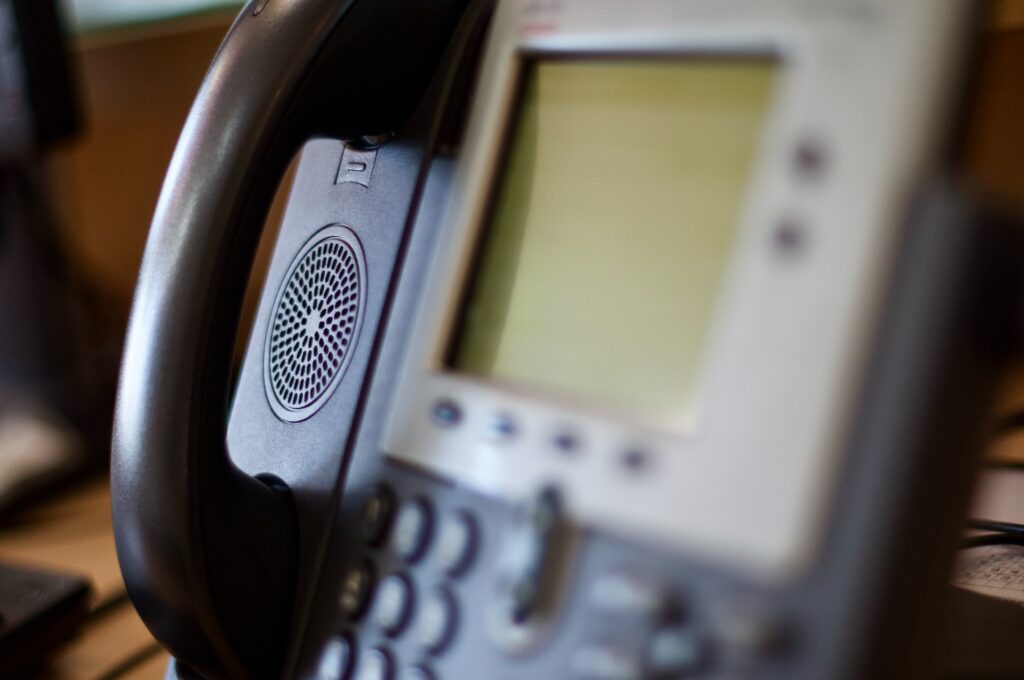What disabled people need to know about the digital switchover
There’s a big change coming for landline phones in the UK. Just like our TV and radio, our phone lines are going digital too.

This is being referred to as the “digital switchover”. It’s going to affect every household in the UK.
If you’re disabled and you use an amplified phone or textphone, or an alarm that’s connected to your phone line, then it’s important to be aware of this change.
What is the digital switchover?
The “digital switchover” describes the switch to digital services for all landline phones in the UK.
All traditional phone lines are going to stop working by 2025.
This is because the analogue phone network (also known as the public switch telephone network, or PSTN) is being replaced by a digital network.
This means that after 2025, you’ll use your broadband connection to make phone calls, rather than the traditional phone line.
Why is it happening?
The physical equipment that makes up our current phone network is really old. Much of it was installed in the 1980s. It’s now very expensive to maintain.
Meanwhile, in recent years broadband companies have been rolling out new digital networks all over the country.
So, phone and internet companies have decided together that it makes sense to move every household’s landline over to the newer broadband networks.
The old phone network will be scrapped, which will save the money it would have cost to maintain it.
When does the digital switchover happen?
All landline phones will be switched over to a digital network by 2025.
Some households have already switched over. For example, BT has already moved hundreds of thousands of its customers to its digital network.
You might have switched to a digital phone line already if you recently moved house, or got a new phone contract.
What do I need to do?
You don’t need to do anything. Your telephone provider will get in touch with you when it’s time to switch over your service.
If you decide to move house or change your telephone service before then, you’ll be switched over to the digital network as part of that process.
If not, you’ll hear from your phone service provider when they’re ready to migrate you.
Once you’ve moved to the digital network, you’ll need to plug your phone into a broadband router instead of the phone socket in your wall.
If you need any new equipment, or you need to have broadband installed, your phone provider should sort it out for you.
What if I don’t want to be switched to the digital phone network?
You don’t have to migrate to the digital network straight away. In most cases, you can choose to stick with the analogue network for now.
But this won’t be an option any more when all of the analogue phone lines stop working in 2025.
You may be offered the option of not having a phone line at all.
How will the digital switchover affect my amplified phone?
Amplified phones are phones that have a louder volume. They’re used by lots of people with hearing loss.
A range of amplified phones have been tested on the digital phone network, and have been found to work as normal.
You’ll need to remember to plug your amplified phone into a router rather than the phone socket in the wall, just like with a regular phone.
How will the digital switchover affect my textphone?
Textphones are phones that allow you to type what you would like to say. They are used by lots of people who have hearing loss and/or speech impairments.
Textphones are no longer in production in the UK, but if you still have one, it should still work after the digital switchover. However, the sound quality might not be as good.
Remember, just like other phones, you’ll need to plug it into your router.
You can also access a free text relay service via the Relay UK app on smartphones, computers and tablets.
What about making phone calls in a power cut?
Digital phones will only work during a power cut if they have a battery back-up. This is because your broadband router gets its power from the mains supply.
If you don’t have a mobile phone or another way to contact the emergency services during a power cut, your phone provider must arrange something for you.
Make sure you let them know. They might supply you with a battery back-up for your phone, or a simple mobile phone to use in emergencies.
Getting support from your provider
If you’re worried about how the digital switchover will impact you because of your disability, it’s a good idea to contact your telephone provider.
You can speak to your provider to let them know that you’re disabled, and find out whether they can offer you extra support with the switchover process.
You should especially reach out to your provider to let them know if you:
- Have any healthcare/telecare devices or alarms that are dependent on your phone line.
- Don’t have a mobile phone that you would be able to use in a power cut.
- Have an amplified phone, textphone or any other kind of specialist phone to help you communicate.
